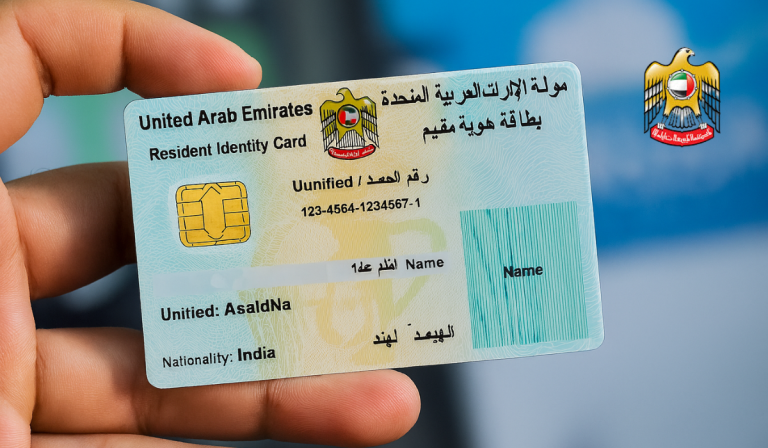Private Sector Companies Tell Of Benefits Recruiting Emirati Talent As Latest Deadline Nears

Private Sector Companies Tell Of Benefits Recruiting Emirati Talent As Latest Deadline Nears. The UAE ongoing push to increase Emirati representation in the private sector is transforming the workforce landscape. As part of the Emiratisation strategy, private sector companies with 50 or more employees are now required to fill 7% of skilled roles with Emiratis by June 30 of each year. With penalties looming for non-compliance, businesses are not only striving to meet quotas but also recognizing the long-term benefits of recruiting local talent. This article explores the experiences of companies navigating this shift and the advantages of hiring Emirati professionals.
Emiratisation Strategy and Its Goals
Emiratisation refers to the UAE government’s initiative aimed at increasing the number of Emiratis employed in the private sector, which has historically been dominated by expatriates. The government has set a target for 10% of private sector jobs to be filled by Emiratis by the end of 2026. To help businesses meet this target, the Ministry of Human Resources and Emiratisation (MOHRE) mandates companies with 50 or more employees to hire Emiratis in at least 7% of skilled roles. Non-compliance could result in significant fines, compelling companies to take the initiative seriously.
By the end of May 2025, over 141,000 Emiratis were already employed in private companies. These numbers reflect the progress made so far and signal the growing success of the Emiratisation strategy. However, there remain significant challenges for businesses in attracting and integrating Emiratis into their workforce, especially in the private sector.
Adapting to the New Emiratisation Rules
Private sector firms are quickly learning that recruiting Emirati talent requires more than just ticking boxes on compliance charts. The real challenge lies in integrating Emiratis into diverse, multicultural environments and offering them opportunities for growth. Many companies are adjusting their recruitment strategies and work cultures to ensure that they provide a welcoming, supportive environment for Emirati professionals.
Key Benefits of Recruiting Emiratis in the Private Sector
- Enhanced Client Relationships: One of the primary benefits of hiring Emiratis, as stated by Ben Crompton, managing partner of Crompton Partners, an Abu Dhabi-based real estate firm, is the cultural and linguistic connection that Emirati employees bring to the table. These connections prove invaluable when dealing with local clients, especially those from the Emirati investor community. By having team members who understand the local culture and speak the language, businesses can foster stronger relationships with their clients, resulting in more successful projects.
- Long-Term Commitment to National Vision: Emiratis bring a deep understanding of the nation’s values and long-term strategic goals. Unlike expatriate workers, who may be subject to changing visa policies and international relocation, Emirati employees are intrinsically connected to the UAE’s future. Their commitment to the national vision can translate into higher employee retention rates and loyalty to the company. For businesses, this means having a workforce that is aligned with the country’s overall mission, particularly in achieving national development goals.
- Cultural Intelligence and Stakeholder Access: As organizations continue to evolve and globalize, the need for cultural intelligence becomes more critical. Emiratis possess an innate understanding of the local market, societal norms, and stakeholder expectations. This unique perspective can provide companies with a competitive advantage when dealing with government agencies, local businesses, and other stakeholders. By integrating Emiratis into decision-making and strategic roles, businesses can ensure that their operations are more attuned to the nuances of the UAE market.
Challenges in Recruiting Emiratis
While the advantages of hiring Emiratis are clear, there are still hurdles that private sector companies must overcome. One significant challenge highlighted by Bader Alawadhi, executive director of Leader Group, is the limited pool of Emirati talent actively seeking roles in the private sector. Many Emiratis are already employed in the public sector, where the pay scales and working hours tend to be more attractive. As a result, shifting Emiratis from government roles to private sector jobs remains a challenge.
Additionally, there is often a perception that Emiratis are primarily interested in government jobs, which offer job security and benefits that private sector jobs may not provide. Companies need to counter these misconceptions and market private sector roles as opportunities for career growth, skills development, and involvement in dynamic projects.
Addressing Recruitment Gaps: Strategies for Success
For companies looking to integrate more Emiratis into their workforce, strategic recruitment is key. While many businesses focus on government-run portals for Emirati talent, Bader Alawadhi advises diversifying recruitment strategies. “HR teams should explore other talent providers and consultancies that specialize in Emirati recruitment. This will help broaden the talent pool and ensure that companies meet their targets more efficiently,” he says.
A proactive approach to recruitment is essential. Businesses should engage with universities, professional networks, and government programs that promote Emirati talent. Additionally, companies need to emphasize the unique opportunities the private sector offers, including professional growth, work-life balance, and involvement in high-profile projects.
Emiratis in Senior Roles: A Missed Opportunity?
One of the challenges faced by senior Emirati professionals is the limited focus on integrating them into strategic roles within companies. As Mohammed Al Gaith, a senior-level employee in real estate, points out, the focus of Emiratisation often rests on filling entry-level or administrative positions. However, this approach fails to tap into the potential of highly skilled Emirati professionals, especially in senior or decision-making roles.
Emirati professionals in senior positions offer more than just technical expertise. They bring cultural intelligence, established stakeholder networks, and an unwavering commitment to the UAE’s national development. Therefore, businesses should make a concerted effort to promote Emiratis into leadership roles, ensuring that their skills and insights are used to drive strategic decisions and innovation.
Carving a Niche: Specializing for Success
For Emirati job seekers, carving a niche in the workforce is a strategy for standing out in an increasingly competitive job market. As Mohammed Al Gaith suggests, while many graduates may compete for general roles, those who specialize in areas like project controls, planning, or niche engineering skills will have an advantage. By positioning themselves as experts in specialized fields, Emiratis can increase their market value and open doors to higher-level roles in the private sector.
The Importance of Long-Term Emiratisation Strategies
The integration of Emiratis into the private sector is not just about meeting quotas or avoiding fines it’s about creating a sustainable workforce that contributes to the long-term success of the company and the nation. Maryam AlNuaimi, an Emiratisation and early careers specialist at Marsh McLennan, emphasizes that businesses should think long-term when it comes to their Emirati employees. “By implementing long-term strategies for Emirati talent, businesses can not only meet government targets but also unlock the full potential of Emirati professionals,” she says.
FAQs About
What are the key benefits of hiring Emiratis in the private sector?
Ans: Hiring Emiratis offers businesses cultural intelligence, stronger client relationships, long-term commitment to national goals, and an increased connection with local stakeholders. It also provides companies with a more diverse and inclusive workforce.
What challenges do companies face when recruiting Emiratis?
Ans: Some of the key challenges include the limited pool of Emirati talent actively seeking roles in the private sector, competition from the public sector in terms of pay and benefits, and overcoming perceptions that Emiratis prefer government roles.
How can companies expand their search for Emirati talent?
Ans: Companies can expand their search by exploring alternative talent providers and consultancies that specialize in Emirati recruitment, as well as engaging with universities and professional networks to attract candidates with the right skills and experience.
Conclusion
Recruiting Emirati talent is not just a regulatory requirement it is a critical step toward ensuring the long-term success of the private sector and contributing to the national development of the UAE. By focusing on the cultural and strategic benefits of hiring Emiratis, companies can foster a diverse and inclusive workforce that is aligned with the nation’s long-term goals. Emiratisation is an opportunity to unlock a wealth of talent, drive innovation, and create lasting impact in the UAE’s rapidly evolving business landscape.















